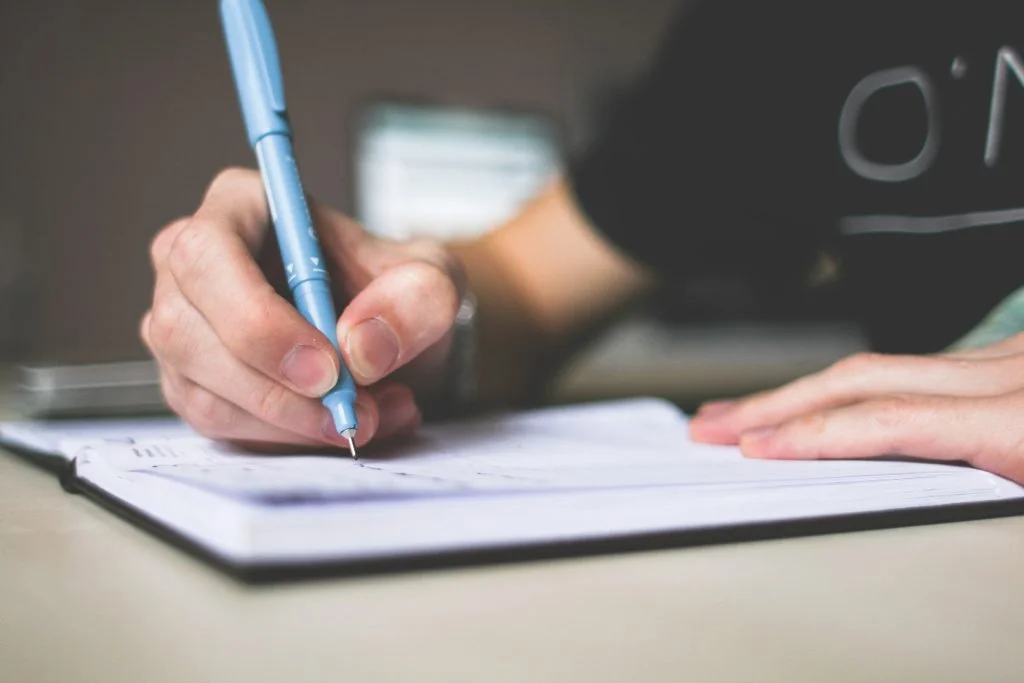
Being the second wealthiest person in the world certainly has its upsides, but there’s no arguing that making unfathomable amounts of money often comes with a busy lifestyle. Jeff Bezos, founder and former CEO of Amazon, who also has his fingers in many other financial pies, is no stranger to the pressures of a high-profile lifestyle.
But unlike his compatriots, he seems to have a better grip on his priorities, balancing family, downtime, and work better than most — at least according to an interview clip with the billionaire shared on X (formally Twitter) that’s amassed almost 5 million views. (1)
Jeff Bezos’ Sleep-Centered Routine
Bezos’ routine centers around sleep and using his energy and brain power during peak hours. “I go to bed early, I wake up early, I like to putter in the morning. I like to read the newspaper, I like to have coffee, I like to have breakfast with my kids before they go to school. My puttering time is very important to me,” he shares in the clip.
He doesn’t schedule any meetings until 10 a.m., preferring mentally stimulating meetings before lunch as that’s when he feels most productive. “Because by 5 p.m., like, I can’t think about that today. Let’s try this again at 10 tomorrow,” he says.
Bezos also stresses the importance of getting eight hours of sleep in making quality decisions: “I think better. I have more energy. My mood is better.” He accomplishes his lengthy night’s sleep by going to bed at a good time and being an early riser. As a senior executive, Bezos says, you’re paid to make a small number of high-quality decisions. “Is that really worth it if the quality of the decisions might be lower because you’re tired or grouchy?” he asks.
As a high-profile executive, Bezos’ philosophy differs from many others in similar roles, including Elon Musk and Virgin mogul Richard Branson, who claim to get only six hours a night, one hour less than the minimum seven the American Academy of Sleep Medicine (AASM) recommends for healthy functioning. Martha Stewart, America’s first female self-made billionaire, reportedly survived on only three hours of shuteye during the peak of her career.
Managing Energy Instead of Time
While the entrepreneurial boom in the 1990s and early 2000s paved the way for hustle culture, giving rise to tech giants in Silicon Valley like Google and Facebook, the appeal of a #riseandgrind mindset has slowly lost its sheen. With the economic turmoil that’s persisted since 2008, people have gradually turned away from obsessively managing their time, with more and more focus now on energy management.
Bezos’ principles — waking early, starting the day slowly with things you enjoy, and prioritizing certain times of the day for more mentally demanding tasks — are worth considering, regardless of your bank status.
Being An Early Riser is Crucial According to Bezos
“Waking up early can be beneficial for a few key reasons. For one, it aligns with our natural circadian rhythms, often leading to better sleep quality and improved overall mood,” says Dr. Chelsea Perry, owner of Sleep Solutions in Westborough, MA, and a member of the American Academy of Sleep Medicine.
Furthermore, waking up early can reduce stress by giving more time to plan and complete tasks, leading to a more productive and satisfying day, according to Dr. Perry. “Early risers also tend to have more time for morning sunlight, which boosts vitamin D levels and helps regulate our internal clock,” she adds.
However, you don’t necessarily have to rise with the sun as it might be better to work with your own natural rhythms. “If his chronotype is an early morning type, then this sounds like it works well for him, but that doesn’t mean it’s something others should try to emulate if they aren’t naturally “morning people,” says Alexis Haselberger, time management, productivity and leadership coach at Alexis Haselberger Coaching and Consulting, Inc.
“There’s nothing special or better about “early to bed, early to rise,” and if you’re naturally more of a night owl, then this wouldn’t work well at all. And worse, you’d feel bad that it doesn’t work,” says Haselberger. It’s much better to plan your work around when you’re naturally more alert rather than to force your body clock to be something it’s not.
Starting the Day Slowly
Puttering around in the morning before starting your day provides a gentle transition from sleep to wakefulness. Dr. Perry says this unstructured time can help reduce stress and set a positive tone that can help you feel more centered and in control. “Plus, it provides a moment to enjoy simple pleasures, like a quiet cup of coffee or a leisurely breakfast, which can enhance your overall wellbeing and productivity,” she adds.
Haselberger stresses there’s nothing special about this routine except that it works for Bezos. However, one significant benefit she sees is that he’s likely not checking email or messages first thing in the morning. She finds tremendous productivity and mental health gains from delaying checking your phone or messages. “If you can focus on things that matter to you, whether personal or work, for a while, after you wake up before you get into your messages, you’ll be more proactive with your time and won’t be as likely to feel as though the day “happened to you,” she says.
Blocking High IQ Tasks During Peak Alertness
Scheduling your most mentally challenging meetings at 10 a.m. could lead to better decision-making and overall productivity. According to Dr. Perry, tackling complex problems and making critical decisions early in the day can help you be more effective. It can also give you a sense of accomplishment and make the rest of your day feel more manageable and productive.
Executive function coach Krissy Metzler says there are significant benefits to reflecting and determining when you are most alert. “For some individuals, such as Jeff Bezos, that is mid-morning, but for others, they may feel the most clear-headed and awake at a different time of day,” she says.
By taking the time to recognize when you are in the best mental state to be productive, you can schedule your day in a way that is working “with” your brain rather than “against” it, according to Metzler. “Scheduling difficult tasks for a non-peak time may cause the task to take longer than anticipated or cause further stress and frustration,” she says. Take intentional time to notice when you feel your best and how that affects your productivity. “Once you become aware of the pattern, you will be better suited to tailor your schedule to what works best for your brain.”
Getting A Full Eight Hours of Sleep
“Getting 8 hours of sleep is like giving your brain a full recharge, which directly boosts your productivity,” says Dr. Perry. “When you’re well-rested, you can think more clearly, make better decisions, and stay focused on tasks longer — plus, good sleep helps with memory and learning, so you’re better equipped to handle new information and challenges,” she adds.
Research shows that insufficient sleep can cause a 40 percent drop in workplace productivity, limiting your ability to perform and potentially leading to loss of income and opportunity to climb the career ladder. (2) According to an article published in Nature, getting better sleep can increase attention span, improve memory, and help regulate moods, all of which support productivity and well-being. (3)
Haselberger believes this is the one tenet that applies to almost everyone. “Studies show that adults need between 7 and 9 hours of sleep a night to thrive, and there are no medals for “sleeping the least.” In fact, if we have sleep debt, our performance decreases dramatically, we make worse decisions, we make more errors, and our work takes longer,” she says.
“There are lots of folks who believe they can “get by” on fewer hours of sleep, but this is a losing proposition in the long run,” Haselberger adds. Getting adequate sleep is perhaps the single best thing we can do for both our productivity and our mood.
Sources
1. @historyinmemes; “Jeff Bezos talks about the morning routine of a billionaire,” Historic Vids via X.com; https://x.com/historyinmemes/status/1807398933439840516; June 30, 2024.
2. Amy C Reynolds, Pieter Coenen, Bastien Lechat, Leon Straker, Juliana Zabatiero, Kath J Maddison, Robert J Adams and Peter Eastwood; “Insomnia and workplace productivity loss among young working adults: a prospective observational study of clinical sleep disorders in a community cohort,” The Medical Journal of Australia; https://www.mja.com.au/journal/2023/219/3/insomnia-and-workplace-productivity-loss-among-young-working-adults-prospective; July 10, 2023.
3. Forrester, Nikki; “How better sleep can improve productivity,” Nature; https://www.nature.com/articles/d41586-023-02307-z; July 17, 2023.
Perry, Chelsea. Author interview. July 2024.
Metzler, Krissy. Author interview. July 2024.
Haselberger, Alexis. Author interview. July 2024.


























